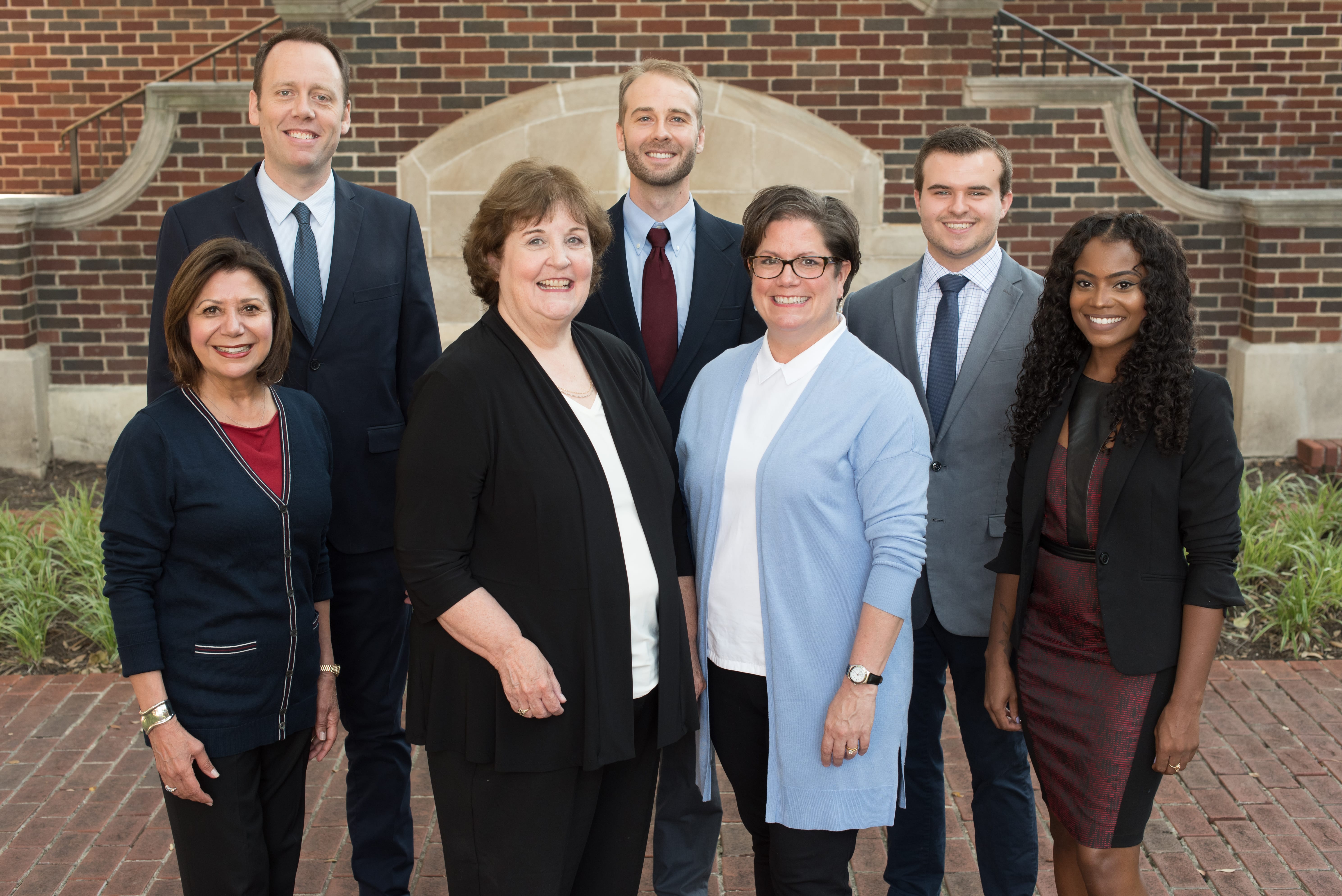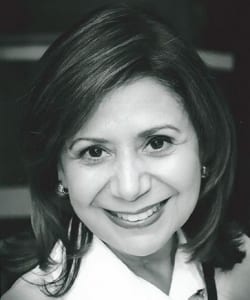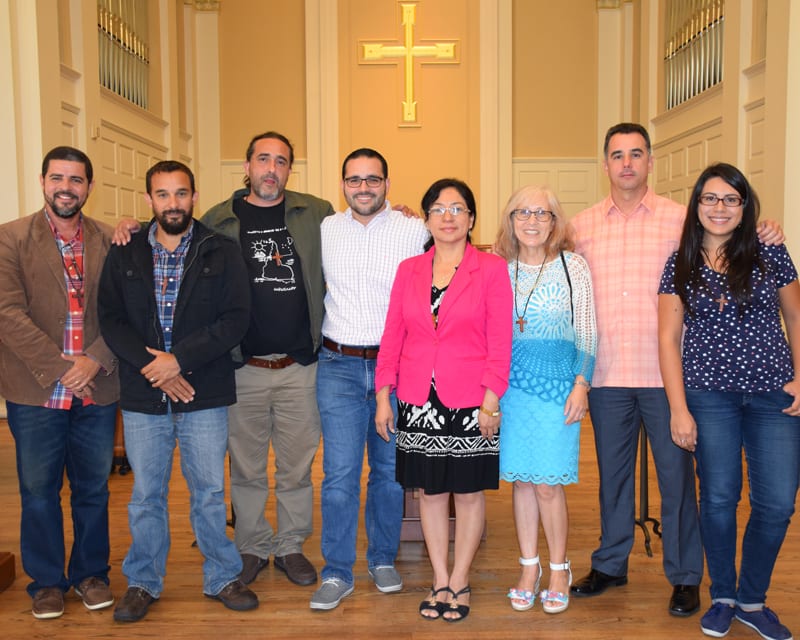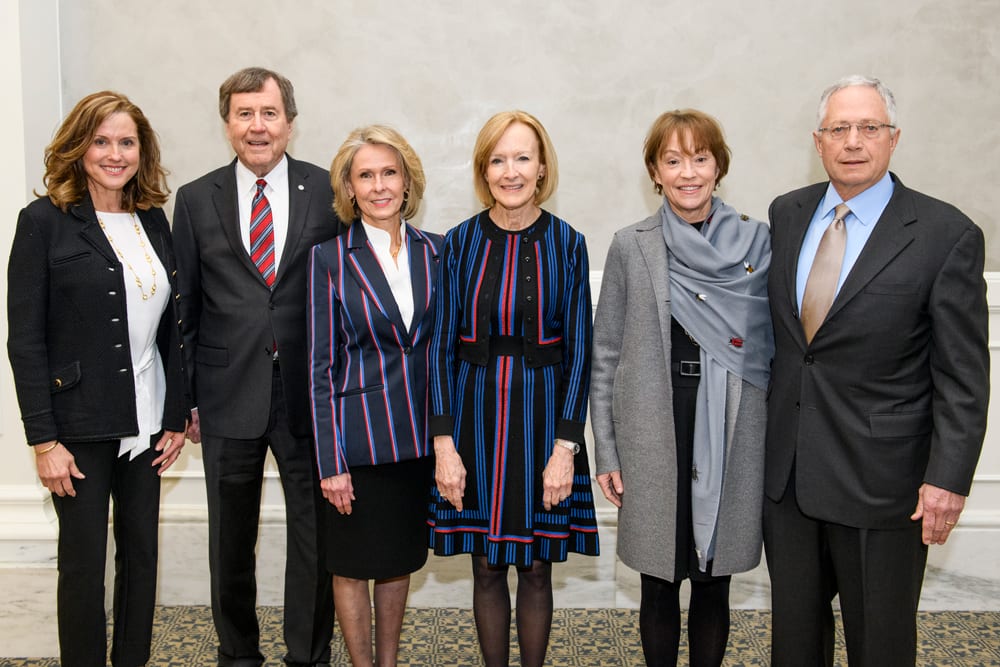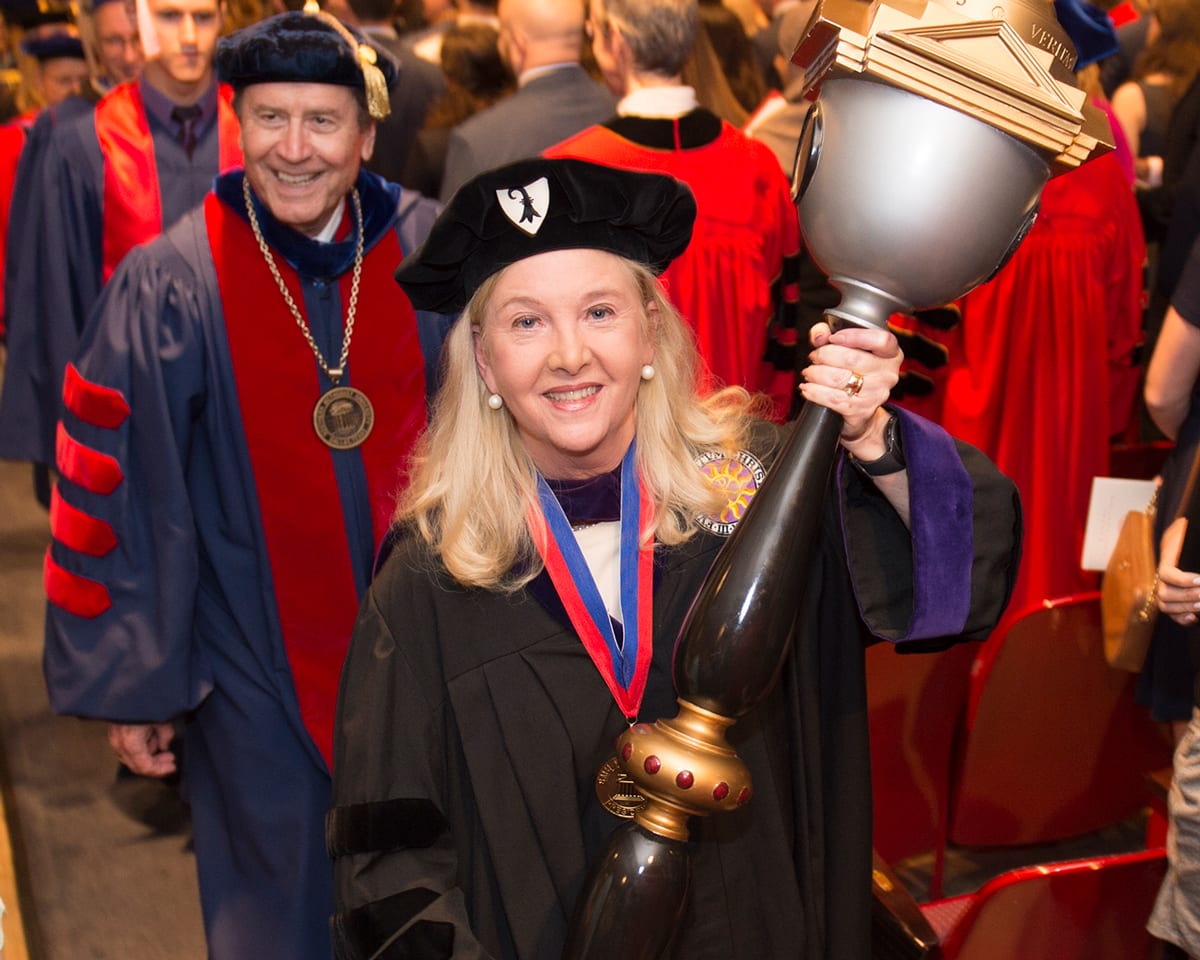When the United States marks the 100th anniversary of women’s suffrage in 2020, Jeanne Stevenson-Moessner will be poised to help people at SMU and beyond to celebrate, look back and learn.
She is co-editing a book, Women with 2020 Vision: Theologians on the Vote (1920), Voice, and Vision of Women with Bishop Teresa Jefferson-Snorton, 59th Bishop of the Christian Methodist Episcopal (CME) denomination and the first woman elected to the position. The book will be published in time to mark the anniversary of the ratification of the 19th amendment on August 18, 1920. Fifteen contributors will each write a chapter.
“I think we need to just pause for a moment, in the cacophony and noise, to celebrate the fact that these women, in spite of their differences, pulled off something so incredible,” she said. “We’re not finished yet. We have a long way to go. We need to keep on in the progress toward equal rights, equal pay and equal acknowledgement. But let’s pause to celebrate.
 Stevenson-Moessner is also working to assemble a display of artifacts related to the struggle and eventual passage of suffrage, a display to benefit undergraduate students and others at SMU. In recent years, she has collected items such as original newspaper clippings from the 1860s and 1850s covering the conferences of women who worked to help pass the vote. They include newspaper stories about Sojourner Truth’s famous “Ain’t I a Woman?” speech and campaign ephemera advocating for and against women’s suffrage.
Stevenson-Moessner is also working to assemble a display of artifacts related to the struggle and eventual passage of suffrage, a display to benefit undergraduate students and others at SMU. In recent years, she has collected items such as original newspaper clippings from the 1860s and 1850s covering the conferences of women who worked to help pass the vote. They include newspaper stories about Sojourner Truth’s famous “Ain’t I a Woman?” speech and campaign ephemera advocating for and against women’s suffrage.
How did she come to amass this collection of items? “My daughter is very tech savvy,” she said. “She introduced me to eBay.”
Stevenson-Moessner began collecting the items because she was fascinated by the way women of such diverse backgrounds worked together, successfully, toward the common goal of suffrage. She hopes the display will serve as a reminder of the importance of voting.
“Whether the weather is bad or it’s inconvenient to get out, students need to know how hard fought this was,” she said.
In teaching courses in pastoral theology, Stevenson-Moessner has worked to establish connections that help keep the coursework grounded in the broader community beyond the walls of Perkins. She has trained in a rape crisis center, an addictive disease unit, three domestic violence programs, a community mental health clinic and a child abuse council. She was a three-year resident at Georgia Baptist Hospital in Atlanta and on the staff of a counseling center. For classes on crisis ministry and sexual and domestic violence, she takes students to train in places such as Genesis Women’s Shelter and the Rape Crisis Center at Presbyterian Hospital in Dallas.
“At the Rape Crisis Center, we go into the unoccupied exam rooms and the students undergo training right there with people who specialize in this area,” she said. Staff from local agencies also come occasionally to the classroom to teach.
Stevenson-Moessner is an ordained Presbyterian minister who stays connected with the Grace Presbytery and attends all the ordination and installation services for Perkins students and recent graduates who are Presbyterian. She is also an active member of The Compassionate Friends, a group for people who have lost a child or a sibling. While it relates to her professional work in pastoral theology, in this case the connection is personal. Her son, David Stevenson Moessner, died in a car accident in January 2015.
“When we went through this shattering experience, the Perkins community rallied around us in a way I could never have imagined,” she said. “Without asking, people showed up to clean our house, put away our Christmas decorations and stocked our fridge. The memorial service filled Perkins Chapel. The entire Seminary Singers choir performed. Former students came back. Colleagues stepped forward and taught my classes. I didn’t even ask. I’ve seen Perkins at its finest.”
Faculty Profile
Jeanne Stevenson-Moessner
Issues in practical theology, pastoral care of women, crisis ministry, pastoral self-care, family systems theory, adoption
Research Interests
Multicultural issues in pastoral care of women, cross-cultural children and their identity formation, the impact of violence on our culture
Favorite Bible Verse
“Luke 10:27, which reads, ‘You shall love the Lord your God with all your heart, and with all your soul, and with all your strength, and with all your mind; and your neighbor as yourself.’ It wasn’t until later in life that I actually heard those last two words. We’re not called to love just two but all three – God, neighbor, self. That realization changed my life. I always try to make sure that those three loves are honored. The hardest is love of self.”
Book on the Nightstand
“I’m almost finished with Less by Andrew Sean Greer. It’s a work of fiction; I picked it up in the airport because it won the Pulitzer. I try to read Pulitzer Prize-winning books to help improve my own writing.”
Fantasy Dinner Party
“First, I’d make sure that someone else does the cooking. I want this to be a meal where I can sit and enjoy it. I would like to invite close members of my family who I’ve lost, who have passed over the thin veil of earth to beyond – which I take as heaven. I would just start the conversation by asking, “How have you been?” Then I’d ask, “What is it really like in heaven? Did you ever worry about me or others you left behind? Do you experience any pain? I have an assumption that there’s no regret; there’s healing.”
Family
Husband Rev. Dr. David Paul Moessner holds the A.A. Bradford Chair in Religion at TCU. Daughter Jean McCarley Stevenson Moessner is a graduate of the University of Iowa’s BFA program and now a jeweler in Dubuque. Son, David Stevenson Moessner, who passed away in 2015.
Pet
A Pomeranian named Little Bit.
Hobby
“I’m a seasoned antique sale-er. I go treasure hunting at garage sales and estate sales around Highland Park every Saturday morning.”
Something About You that Most People Don’t Know
“I’m related to Jack Daniels. My grandmother was his niece.”
Signature Dish
Shrimp Creole
Personal Spiritual Practices
Each morning, she reads a passage from Healing After Loss: Daily Meditations for Working Through Grief by Martha Whitmore Hickmann. She also attends a deep conditioning exercise class. “It’s very rigorous; the woman who leads it is like a loving drill sergeant,” she said. “The class helps me to keep my body centered. When I was president of the University Senate (2016-17), I had to carry the University Mace at convocations. It was heavy – 26 pounds – and you carry it down a very long hallway. The women in the class were so supportive and helped me train for that.”

